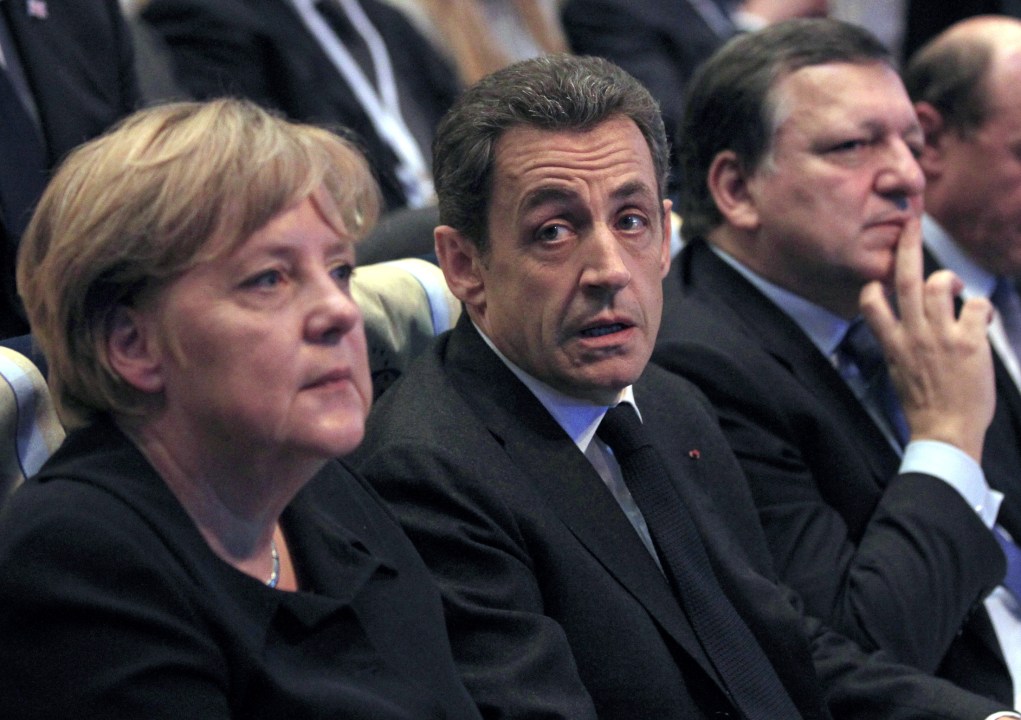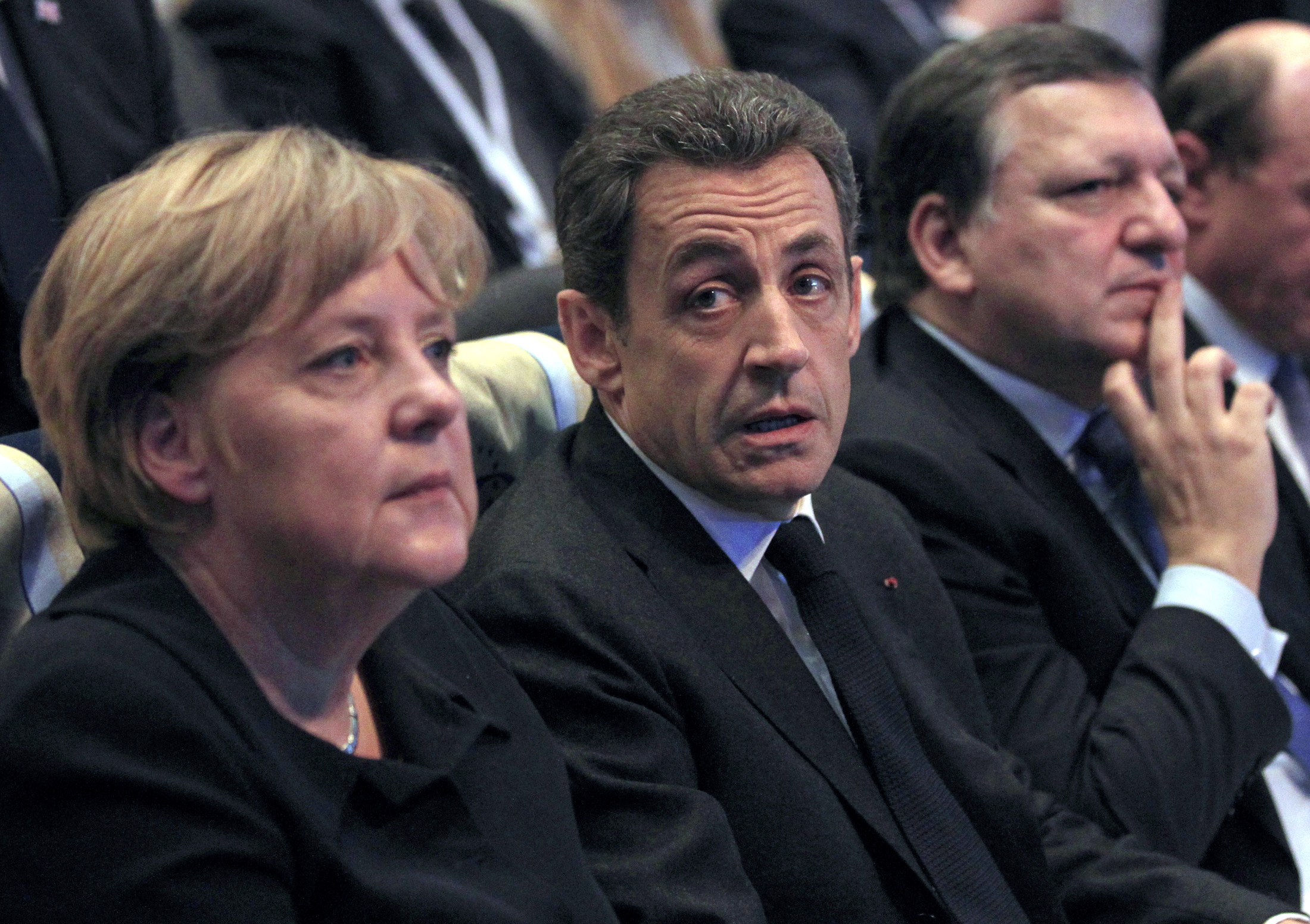 A day or so ago, the markets were rising in anticipation of what might be achieved at
this Brussels summit. But this morning they’re mostly either unmoved, or — as in the case of borrowing costs in Italy and Spain — shifting in unpropitious directions. No-one, it seems,
has been won over by yet another night of political bargaineering in Brussels.
A day or so ago, the markets were rising in anticipation of what might be achieved at
this Brussels summit. But this morning they’re mostly either unmoved, or — as in the case of borrowing costs in Italy and Spain — shifting in unpropitious directions. No-one, it seems,
has been won over by yet another night of political bargaineering in Brussels.
And understandably so. None of the measures mooted this morning are particularly concrete; all have a sogginess about them. More cash will be transferred to the European Financial Stability Facility, but it’s still some distance short of the €1 trillion that was, ahem, ‘announced’ at the end of October. Even with more funds from the IMF, and an earlier launch date (of next July) for the EFSF’s successor bailout mechanism, it’s still uncertain whether the eurozone would have enough wonga to prevent an Italian collapse, let alone a Spanish one too. And as for that new treaty, you can expect the negotiations around it to drag on for months and months, perhaps even taking in one or two national referenda. Politics on top of politics on top of economic meltdown.
Even though David Cameron has decided to stand apart from Merkel and Sarkozy’s grand projet, I imagine part of him will be hoping that, against all expectations, the new 17-plus manage to pull something off. According to the cover of this morning’s Times, the Treasury is working by a ‘semi-official’ forecast that UK GDP would contract by 7 per cent — or £100 billion — if the euro collapsed. Which leaves just one conclusion: brace yourselves, CoffeeHousers, brace yourselves.







Comments